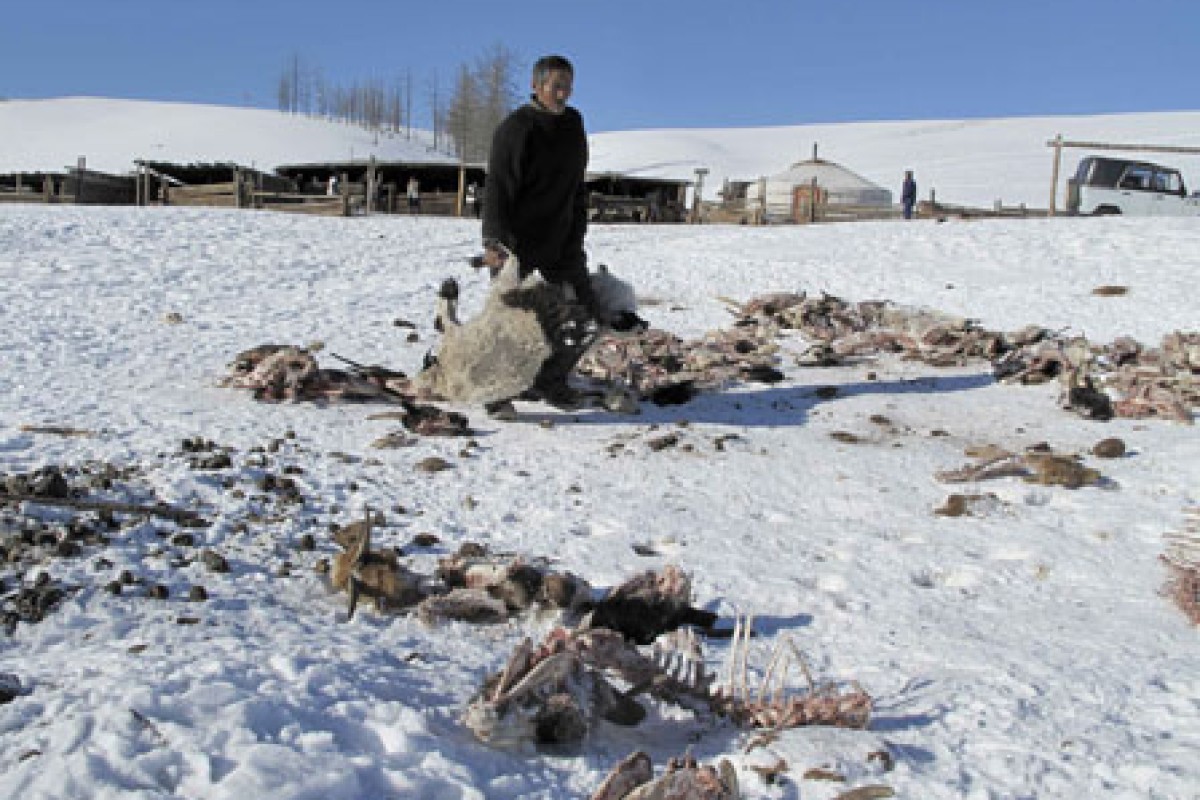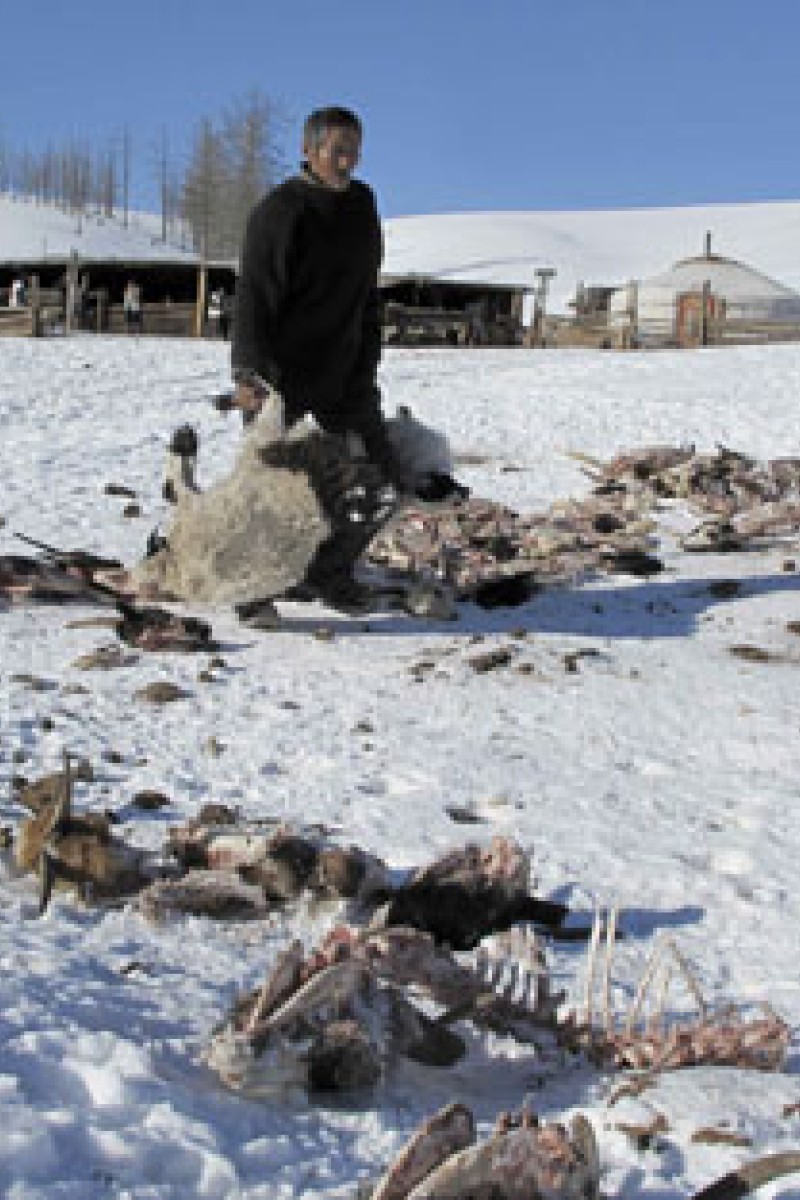
Mongolia's nomads are facing hunger and severe poverty during a bitter winter
| By Ben Allen, La Salle College |
The Mongolians are facing one of the harshest winters in living memory. With temperatures plunging to minus 50 degrees Celsius in some places, millions of livestock have perished in the freezing conditions.
Unable to deal with the crisis, the government in Ulaanbaatar appealed for help to the United Nations. Aid is coming in but much more needs to be done.
Mongolia's severe winter is simply known as a 'zud', which is caused by a dry summer and a particularly cold and snowy winter leading to massive deaths of livestock.
About 30 per cent of Mongolia's population of 3 million people are nomads and the drought had prevented their herds from grazing. The long, dry summer had also left farmers with too little food for their animals.
Scientists have predicted more extreme weather patterns in the future. This does not bode well for the nomads who live in Gers on the country's grasslands.
For a nation where a third of the population depend on livestock for a living, a 'zud' can be particularly damaging.
Mongolia's nomads take great pride in their way of life, as they roam the steppes in search of food, grass and water.
But this lifestyle makes it very hard to reach impoverished families who are spread across a country with the lowest population density in the world.
Fortunately, several UN organisations, including the United Nations Development Programme (UNDP), are doing their best to ease the people's suffering. Their main focus is a scheme which pays people to dig out livestock carcasses to prevent the spread of disease.
The relief workers have a battle on their hands, however, with thick layers of snow covering more than 60 per cent of the country. The affected livestock include sheep, goats, horses, camels, cows and yaks.
In addition, the 'zud' has hit Mongolia's marmot population very hard, while some of the rare 'Takhi' - a native Mongolian horse - have also fallen victim to the extreme weather conditions.
It is important that everything is done to help alleviate the hunger and severe poverty faced by the Mongolians.
With about a third of Mongolia's population living below the poverty line, the people need urgent help from the international community.
You, too, can show that you care by contacting Unicef Mongolia, UNDP Mongolia, or the Flagstaff International Relief Effort, which is running several initiatives in the country.
For more details, visit:
www.fireprojects.org
www.unicef.org/mongolia
www.undp.mn
What do you think? To share your opinion, click here
